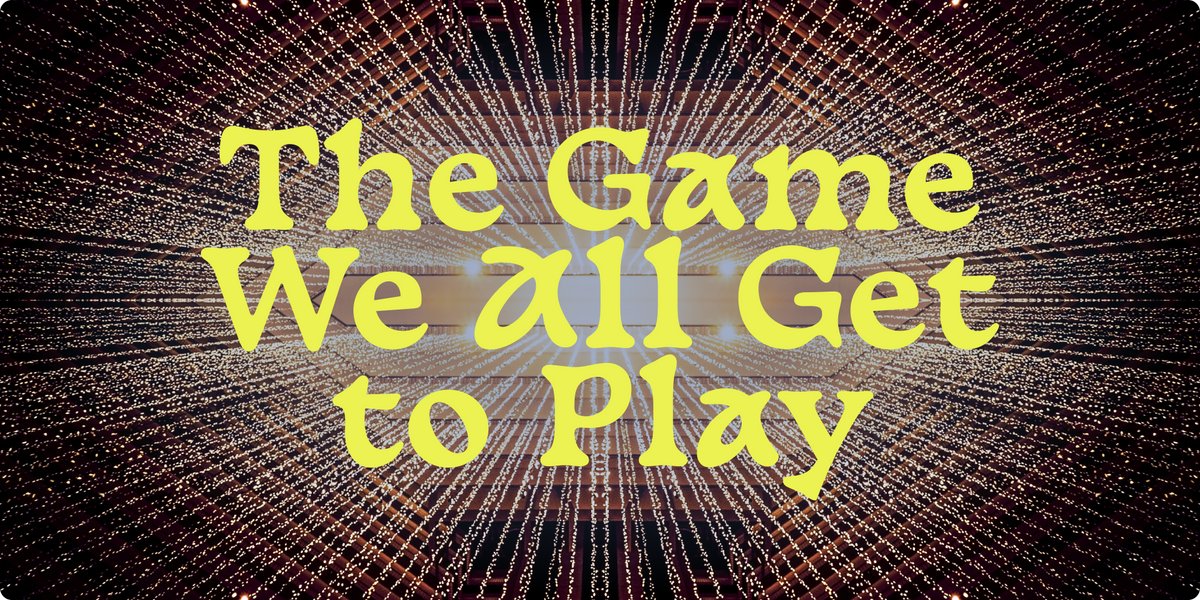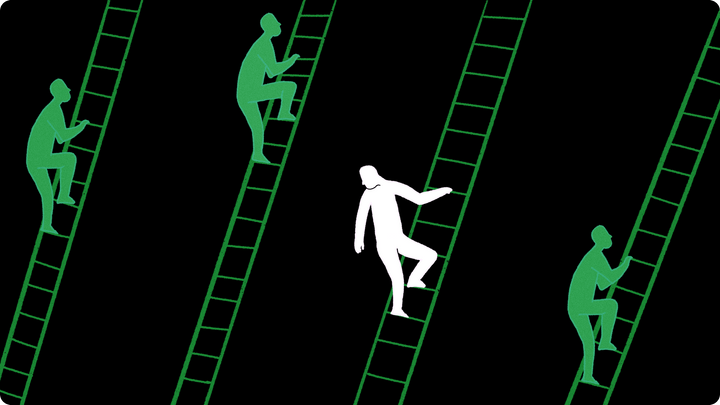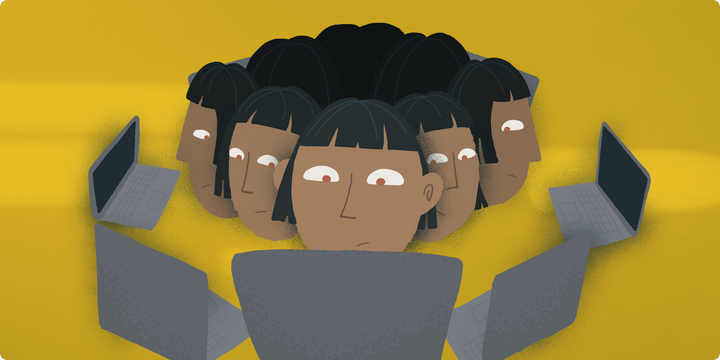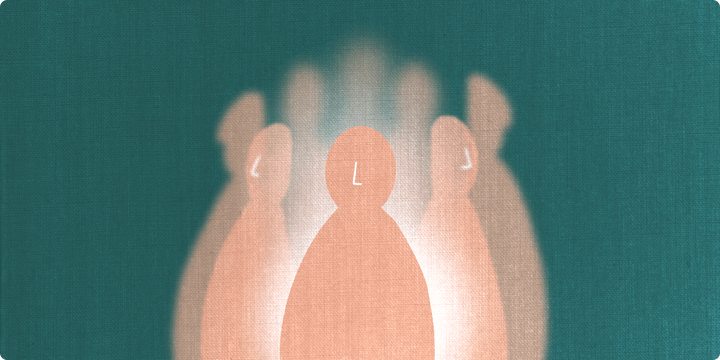The Game We All Get to Play
On the the Web as a Facilitator of the Passion Economy and the Democratization of Entrepreneurship

Through my unique little lens of the online world, I’ve been noticing this idea as well. Some people don’t like the term, but it’s best known as the "creator economy". This is about the Internet being a vector for anyone and everyone to share their voice, create stuff online and make their first dollar on the Internet.
So many people have already been doing it. We can of course think of fashion or lifestyle bloggers (the earliest ones I can remember from my Internet youth on Tumblr) which have become, over the years, a whole sub-industry of advertising. We now call them influencers and they work with agencies, sign contracts with brands, and end up becoming walking talking living breathing ads. While some of them sold their souls to the devil, a lot of them are doing a really good job at curating the brands they want to represent by criteria such as sustainability, transparency, ethics, and make a conscious effort to provide critical opinions about the products.
There’s of course the tech review youtube. Where people get their hands on the latest devices and accessories, record satisfying ASMR unboxing videos and review and compare the hardware and software so we better know what to buy.
Then there’s this most recent wave of indie thinkers. This movement has brought newsletters back in style and arrived to fill a deep need for curation in today’s information overload climate. These creators’ content is about ideas and thoughts and links worth sharing. They take in a bunch of information so you don’t have to and distill the most valuable stuff in a weekly issue of their Substack, for example. Gradually, when they gain popularity, these folks can leverage their growing audiences for some revenue opportunities like getting patrons, or creating an even more valuable version of their newsletter that comes with a small price tag. What’s fun is that once you get 1,000 of those true fans, it actually ends up being good money.
Lots of them also tap into their kinships to create the value of community. Once they build solid audiences, creators act as connectors by allowing their like-minded following to meet in forum-style places like Circle or Discord. And again, the pricetag of which is up to them.
Thread: New tools are emerging and focusing on *consumers* first. That's because consumers today aspire to become businesses tomorrow.
— Li Jin (@ljin18) September 5, 2019
I’ll dub this the "Enterprization of consumer."
So we’re seeing it unfold in many areas, individuals are showing an interest in becoming small businesses (brands, they're becoming brands), but within the realm of the Web. This is what Li Jin has wonderfully coined the "enterprization of consumer". In short, apps and tools that were originally built for consumers; Instagram, Youtube, Substack, are listening to their audiences and offering more and more enterprise-y solutions. Ways for these former-consumers-now-one-person-brands to monetize what they upload to the platform, ways to track traffic analytics, ways to automate their workflows, etc.
I’m so glad to see this happening. This, for me, is a perfect example of the Web being a vector for fulfilling our collective potential. I’ve always believed, like Muhammad Yunus said, "All human beings are entrepreneurs".
“Human beings are not born to work for anybody else, for millions of years that we were on the planet, we never worked for anybody. We are go-getters. We are farmers. We are hunters. We lived in caves and we found our own food, we didn’t send job applications. So this is our tradition."
— Muhammad Yunus
Ever since my first (and only one to date) real job as an employee, I’ve wondered how people do to stay passionate about someone else’s dream. Because in the end, companies are their CEO’s or founder’s dream, their passion. Mix that with a knack for selling, and they gather the right people around them to help make their vision come true. Unless a company’s offering is really perfectly aligned with all of your own core beliefs (which, hallelujah if that happens), employees are basically helping the CEO build their dream. Employees are like a crowd in a concert constantly cheering their CEO up.
But we all have dreams, and they’re all valid and beautiful and worth pursuing. Unfortunately, the landscape of unbridled capitalism makes it so that you need a sales mindset, a talent for influence, and people skills to be a successful entrepreneur and there’s a lot of friction in creating an IRL business. Luckily, this is precisely where the Web removes that friction, and lowers the bar for entry to anyone who’s motivated enough to learn in public and be consistent in creating stuff that people will like.
The Web is currently allowing so many passionate hobbyists to make money from their craft through Etsy, for example, or stay at home moms to make extra cash by drop-shipping, or bakers to showcase their aesthetically-pleasing process by making satisfying TikToks to get new orders in, or students to promote their digital note-taking templates by sharing study tips, the examples are almost endless.
I love that the Web is responding positively to this and that apps are offering enterprise-level tools to their consumer users. This redefines and democratizes entrepreneurship. It also says that a business doesn’t require employees, a brick-and-mortar office and world-wide customers to be a business. It unlocks so many doors, everything is learnable online, people even have successful online businesses coaching others how to start their own online business! That’s the beauty of the web for me; that collaboration, that level-setting, that we all start at the same place and have access to the same tools.
The digital era allowed for a whole new category of products to count as sellable —digital products. These are so democratic to make. These range from e-books, to PDF templates, to online courses, to wallpaper images, to digital stickers (yup, that’s a thing), to in-depth video analyses (some of these are legit high quality full-length documentaries, thanks to channels’ patrons), photography editing presets, icon packs, the list goes on. Whatever you’ve already found yourself needing in your digital life, someone’s out there, selling it.
The "enteprization of consumer" is, yes, a blurring of even more lines but this is what blurring the lines should be about. Democratizing, creating opportunities, removing barriers, opening doors, allowing for community and collaboration, and enabling niches.
Photo by Joshua Sortino on Unsplash (modified)
Basteleur open source typeface by Keussel via Velvetyne.fr



